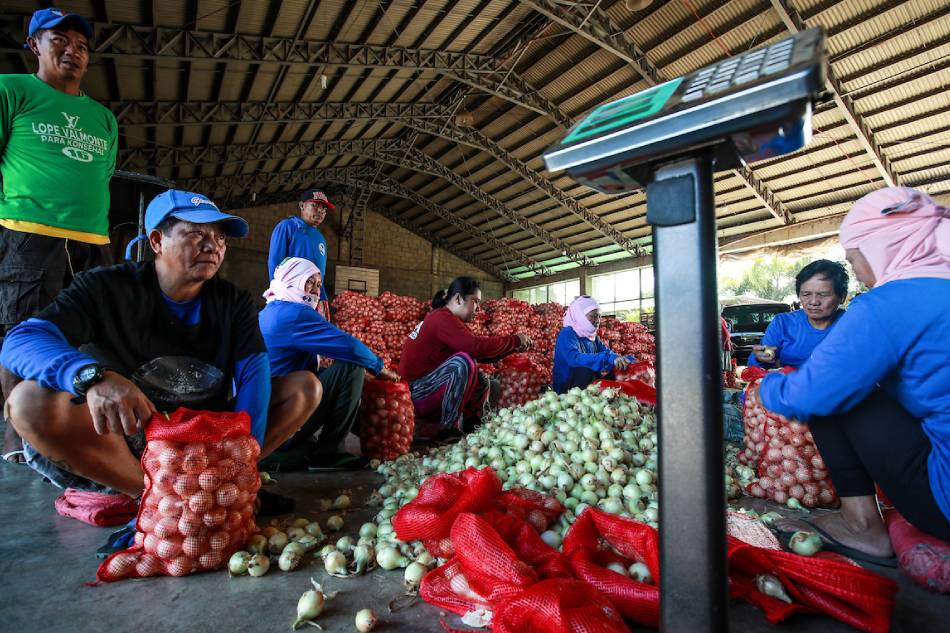NEDA: 'No truth' RCEP to hurt agri sector, problems caused by 'past neglects' | ABS-CBN
ADVERTISEMENT

Welcome, Kapamilya! We use cookies to improve your browsing experience. Continuing to use this site means you agree to our use of cookies. Tell me more!
NEDA: 'No truth' RCEP to hurt agri sector, problems caused by 'past neglects'
NEDA: 'No truth' RCEP to hurt agri sector, problems caused by 'past neglects'
Job Manahan,
ABS-CBN News
Published Feb 21, 2023 06:00 PM PHT
MANILA — The National Economic and Development Authority (NEDA) on Tuesday allayed concerns that ratifying the Regional Comprehensive Economic Partnership (RCEP) will hurt the agriculture sector.
MANILA — The National Economic and Development Authority (NEDA) on Tuesday allayed concerns that ratifying the Regional Comprehensive Economic Partnership (RCEP) will hurt the agriculture sector.
NEDA said Philippine agriculture even stands to benefit from the free trade deal.
NEDA said Philippine agriculture even stands to benefit from the free trade deal.
"With regards to the allegation that the agricultural sector will be hurt, there's no truth to that… whether or not there is RCEP, we need to invest in agriculture. Kinakailangan nating ma-address ‘yung mga concerns," said NEDA Secretary Arsenio Balisacan.
"With regards to the allegation that the agricultural sector will be hurt, there's no truth to that… whether or not there is RCEP, we need to invest in agriculture. Kinakailangan nating ma-address ‘yung mga concerns," said NEDA Secretary Arsenio Balisacan.
The government has said that RCEP will allow Philippine agricultural exporters greater access to the markets of member countries, as well as fewer barriers to trade.
The government has said that RCEP will allow Philippine agricultural exporters greater access to the markets of member countries, as well as fewer barriers to trade.
ADVERTISEMENT
Balisacan added that the problems being experienced by agriculture now "were outcomes of past neglects of the sector" and have nothing to do with RCEP.
Balisacan added that the problems being experienced by agriculture now "were outcomes of past neglects of the sector" and have nothing to do with RCEP.
"It must be ratified. The future of our country depends so much on our ability to attract investors, particularly foreign capital because the domestic capital is not enough," Balisacan told reporters in a Malacañang briefing.
"It must be ratified. The future of our country depends so much on our ability to attract investors, particularly foreign capital because the domestic capital is not enough," Balisacan told reporters in a Malacañang briefing.
Being an RCEP member, he said, means the Philippines is "ready for business" and is welcoming investments and jobs.
Being an RCEP member, he said, means the Philippines is "ready for business" and is welcoming investments and jobs.
"When we say that we join RCEP, tomorrow we'll benefit from RCEP or even next year we'll already get the full benefits. Realistically, when investors look at the country... it takes months or even years before that intention to invest to actual production," he said.
"When we say that we join RCEP, tomorrow we'll benefit from RCEP or even next year we'll already get the full benefits. Realistically, when investors look at the country... it takes months or even years before that intention to invest to actual production," he said.
The Senate is still deliberating on the ratification of RCEP, which is a free trade deal among the 10 ASEAN members as well as Australia, China, Japan, South Korea and New Zealand.
The Senate is still deliberating on the ratification of RCEP, which is a free trade deal among the 10 ASEAN members as well as Australia, China, Japan, South Korea and New Zealand.
ADVERTISEMENT
The free trade deal will also allow more agricultural products from other countries to enter the Philippines with zero tariffs.
The free trade deal will also allow more agricultural products from other countries to enter the Philippines with zero tariffs.
Last week, the trade department assured farmers that the agreement will protect them.
Last week, the trade department assured farmers that the agreement will protect them.
President Ferdinand Marcos, Jr. earlier this month said ratifying the RCEP was necessary so the country could access global markets.
President Ferdinand Marcos, Jr. earlier this month said ratifying the RCEP was necessary so the country could access global markets.
Video from PTV
Read More:
RCEP
Regional Comprehensive Economic Partnership
National Economic and Development Authority
NEDA
ADVERTISEMENT
ADVERTISEMENT



